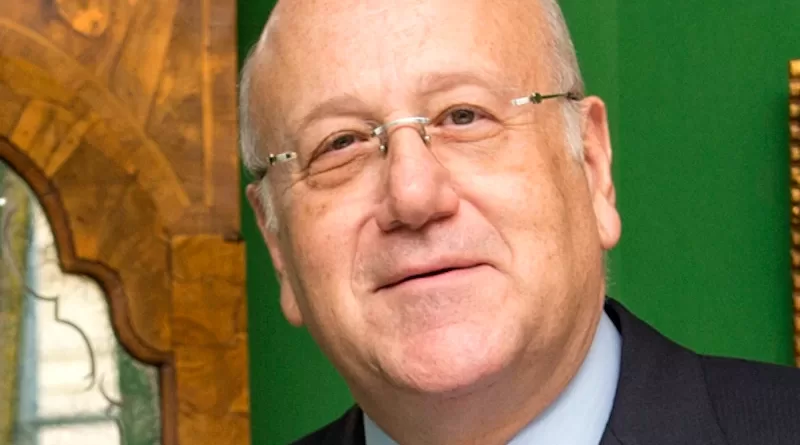Parliament Decides Caretaker Government Can Run Lebanon
By Arab News
By Najia Houssari
The Lebanese Parliament has decided that the caretaker government headed by Najib Mikati can be handed the powers of the presidency amid the leadership vacuum, according to constitutional principles.
Former President Michel Aoun sent a letter to parliament on Sunday, 24 hours before the end of his term, asking MPs to withdraw confidence in Mikati’s government. He argued that it has no legitimacy and should not assume the duties of the presidency.
Parliament held a session to discuss the letter on Thursday. Some MPs believed that the correspondence was pointless given that the Lebanese constitution gives the government, even a caretaker one, the right to run the country in the light of a presidential vacuum. They stressed that the priority is to elect a president, not discuss governments.
Other MPs, including Aoun’s bloc, the Free Patriotic Movement, said that the letter would transfer the dispute between Aoun and Mikati to parliament.
Many representatives warned against such conflict provoking sectarian strife between the Maronite and Sunni sects.
After Aoun’s letter was read, reformist MPs, the Kataeb Party, and MP Michel Mouawad walked out of the assembly hall on the grounds that “according to Article 75, parliament is now an electoral body only and not entitled to perform any other function.”
Mikati said during the session that if his government fails to carry out its responsibilities, including in caretaker mode, it would be subject to constitutional accountability for violating its duties as explicitly stipulated in Article 70.
Mouawad said: “This is an attempt to create sectarian tension to justify the power vacuum. Those who want to defend the president’s powers ought to abide by the constitution and elect a president.”
Sami Gemayel, head of the Kataeb Party, said: “Aoun’s letter aims to create tension and stir up sectarian conflicts among the Lebanese.
“If the goal is to drag parliament into strife, there is no need to hold this session because our mission is to elect a president.”
The reformist MPs said that electing a head of state should be prioritized over other matters and that holding a session to read and discuss a letter was wrong at this time.
MP Bilal Al-Hashimi said: “We do not want to discuss issues that are now in the past. We need to elect a president because the people can no longer bear the miserable economic and social situation.”
MP Ghassan Hasbani, of the Lebanese Forces, said that the priority is to elect a president without being distracted by side issues.
The session, which was held without the media’s presence, ended with Lebanese Parliament Speaker Nabih Berri’s recommendation that any change in the status quo requires a constitutional amendment, and that now is not the time.
A heated debate took place between Strida Geagea, of Lebanese Forces, and Free Patriotic Movement’s head Gebran Bassil, over the next president’s popular representation. Geagea said her husband, Samir Geagea, had the strongest Christian base in terms of popularity.
Bassil defended Aoun’s letter after the session, accusing Mikati of not having wanted to form a government before the end of Aoun’s term and deliberately leading the country into a power vacuum.
Berri withdrew the call for dialogue he had made to agree on a candidate for the presidency, citing objections by the LF and FPM on such discussion between blocs.
The constitutional deadline for electing a new president ended with Aoun’s term, and parliament has so far failed, after four voting sessions, to deliver any candidate.
Hezbollah and its allies deliberately disrupt quorum, cast blank votes, refrain from naming a candidate and accuse other candidates of being provocative.
Berri, who set Nov. 10 as a new date to vote, said: “Starting next week, we will hold a weekly voting session until a president is finally elected.”
Mikati said in his speech at the Arab Summit on Wednesday: “The beacon of light has gone out; the port that was considered the gateway to the East has suffered an explosion; and the lights of the airport, which should be a connection platform, are out due to lack of fuel.
“The Lebanese are facing the worst economic crisis in the history of Lebanon. We pin hopes on our Arab brothers to help our country, so do not leave us alone.”

